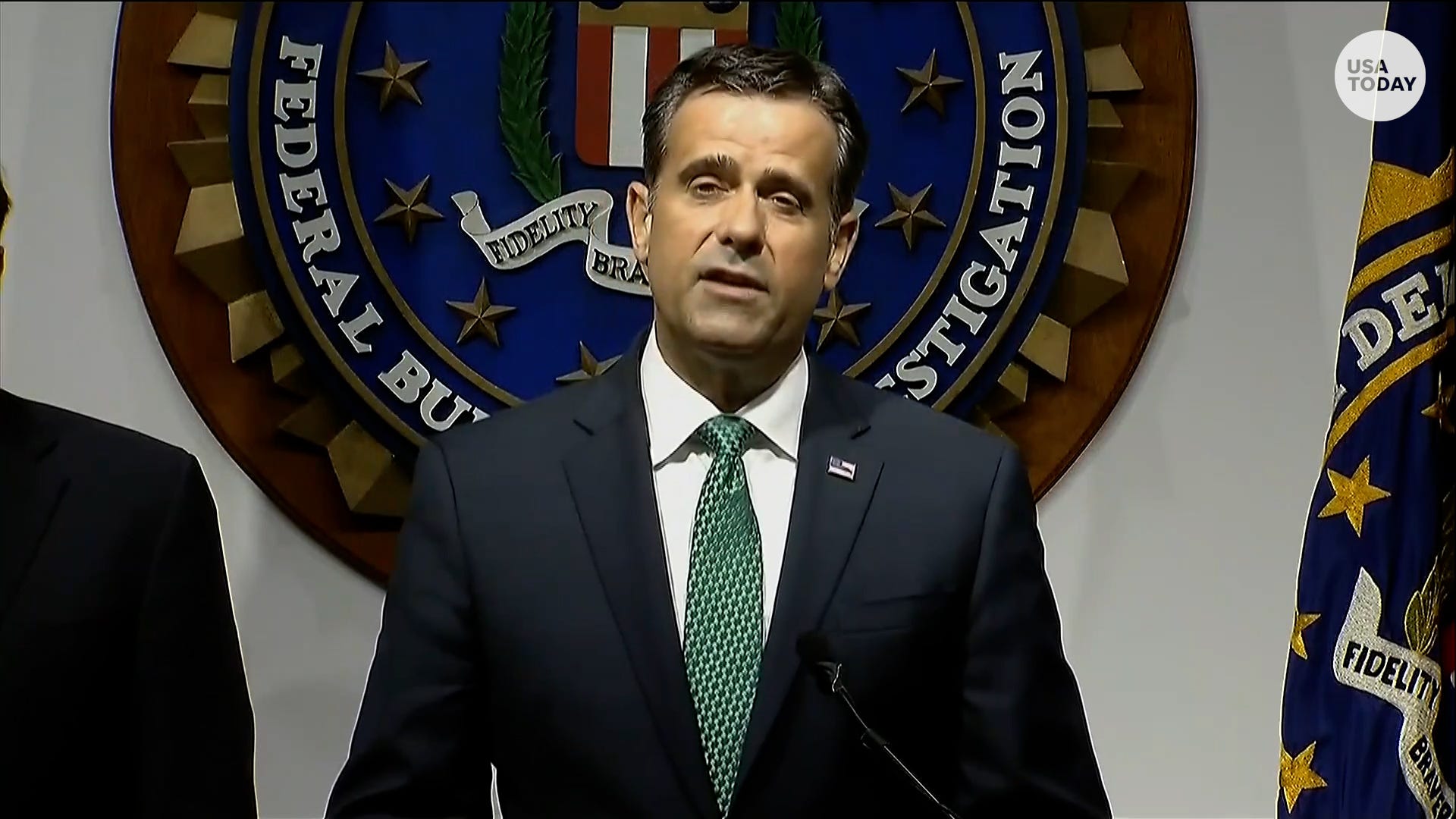Iran, Russia obtained voter registration info to sow confusion in presidential election, US officials say
Kevin Johnson , Kristine Phillips | USA TODAY

Director of National Intelligence John Ratcliffe said late Wednesday voter registration information had been obtained by Iran and Russia in an attempt to undermine confidence in the 2020 election.
Ratcliffe said Iran sought to sow unrest in the U.S. in an attempt to damage the candidacy of President Donald Trump.
He also said that Russia has obtained voter information just as the Kremlin had done in when it interfered in the 2016 election.
Ratcliffe, who appeared with FBI Director Christopher Wray, said that Iran had sent false information to voters, including spoof emails claiming that fraudulent ballots can be sent from overseas.

More: Americans want their vote to count. Here's what voters need to know about their rights
Ratcliffe said intelligence officials have not seen the same level of activity from Russia but said the country has also obtained voter information.
"These actions are desperate attempts by desperate adversaries," Ratcliffe said. "We will not tolerate foreign interference in our election."
The announcement comes after federal cybersecurity officials Wednesday warned Americans that threatening emails had been sent to voters in Florida, Pennsylvania and other states to undermine the integrity of the election.
The emails, which purport to have been sent from "info@officialproudboys.com," say the group has the voter's contact information and would “come after” them if they didn’t vote for Trump.
Proud Boys is a far-right group that espouses militant authoritarian ideology.
Who's undecided?: Donald Trump's toughest hurdle to pull off a win: Most minds are made up
“These emails are meant to intimidate and undermine American voters’ confidence in our elections,” said Christopher Krebs, director of the Cybersecurity and Infrastructure Security Agency at the Department of Homeland Security.
Though the emails claim to know which candidate someone casts a ballot for, Krebs posted a message on Twitter reminding Americans that ballot secrecy is guaranteed by law in every state.
"We have already seen Iran sending spoofed emails, designed to intimated voters, incite social unrest and damage President Trump," Ratcliffe said. "You may have seen some reporting on this in the last 24 hours or you may have been one of the recipients of these emails."
The late-evening announcement by Ratcliffe and Wray was delivered with little-notice but didn't go much further than alerts issued in August when intelligence officials warned about the activities of Russia, Iran and China.
In that bulletin, the chief of the National Counter-Intelligence and Security Center said that Russia was actively working to "denigrate" presumptive Democratic presidential nominee Joe Biden, while China viewed Trump as "unpredictable" and preferred that he not win re-election.
The analysis also concluded that Iran was working to foment division and undermine Trump in advance of the 2020 election.
"Tehran’s motivation to conduct such activities is, in part, driven by a perception that President Trump’s re-election would result in a continuation of U.S. pressure on Iran," the analysis concluded, adding that Iran also feared that the Trump administration would push for regime change.
Earlier Wednesday, leaders of the Senate Intelligence Committee warned voters of attempts to disrupt the U.S. election system.
“Our adversaries abroad seek to sow chaos and undermine voters’ belief in our democratic institutions, including the election systems and infrastructure that we rely on to record and properly report expressions of the voters’ will," acting Chairman Sen. Marco Rubio, R-Fla., and Vice Chairman Mark Warner, D-Va., said in a joint statement without referring to specific foreign actors.
"They may seek to target those systems, or simply leave the impression that they have altered or manipulated those systems, in order to undermine their credibility and our confidence in them."
“As we enter the last weeks before the election, we urge every American – including members of the media – to be cautious about believing or spreading unverified, sensational claims related to votes and voting. State and local election officials are in regular contact with federal law enforcement and cybersecurity professionals, and they are all working around the clock to ensure that Election 2020 is safe, secure, and free from outside interference.”
Via PakapNews